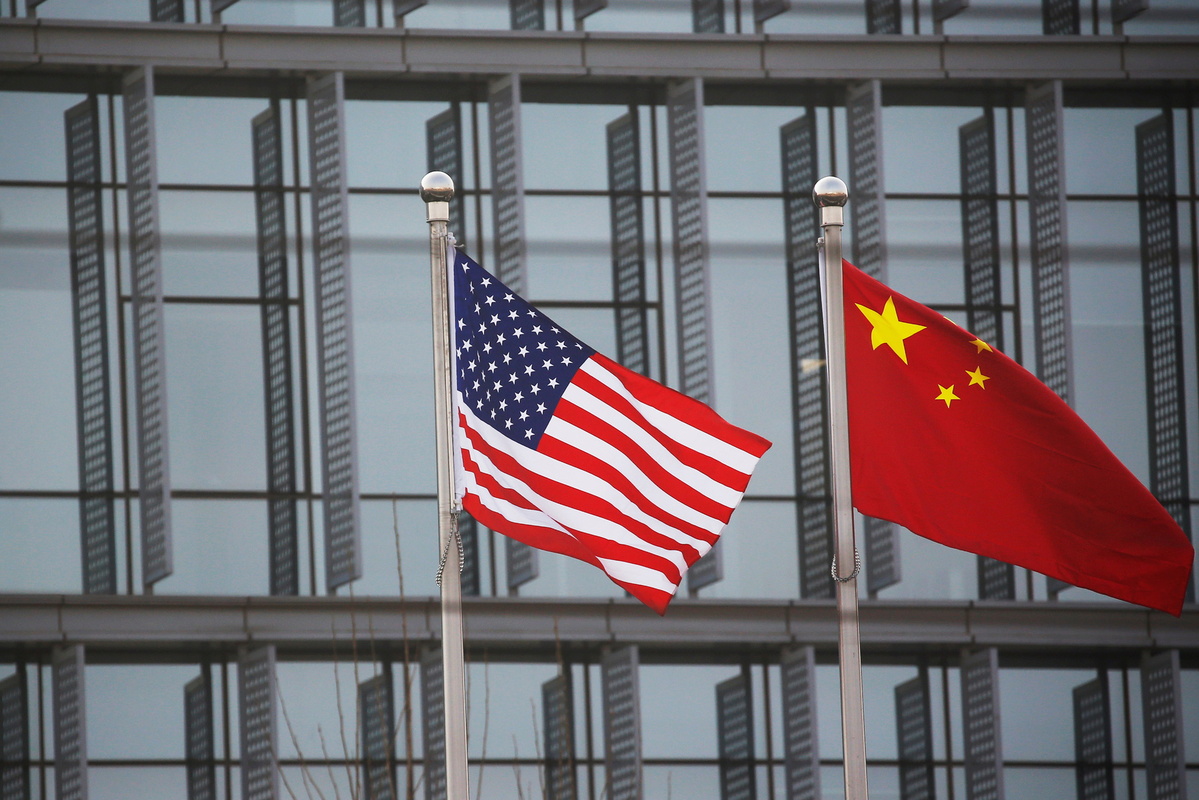China promptly serves US what it ordered: China Daily editorial


In recent years, the United States has unilaterally provoked a trade war with China and launched a campaign to challenge the country's high-tech industries. But instead of being crushed, China has been spurred to more firmly follow the path of endogenous innovation and the Chinese economy has entered a new stage of high-quality development. Nor have the US' intimidation tactics and various blockades against China prompted the return of manufacturing and a reduction of the trade deficit. Instead, it has caused the US to lose important overseas markets and weakened its credibility.
But although it is the US that has taken the initiative to attack China's tech development, China will by no means allow the US to hurt its core development interests without consequences.
Thanks to the Joe Biden administration's desperate attempts to patch up its "chip iron curtain" against China, whose harming of relations has been compounded as the moves came shortly after the outgoing US president's third "candid, constructive" in-person meeting with his Chinese counterpart last month, the dance between the world's two largest economies has become more intense.
While the US targets advanced chips and high tech, the top links of the value chain, China has put crucial mineral materials in its crosshairs in the same manner. These minerals are the foundation for the chip chain the US has targeted, and in doing so China is ensuring the US is served what it has ordered.
After the Biden administration's latest measures to tighten exports of semiconductor manufacturing equipment, storage chips and other items that contain US know-how to China, Beijing has finally made up its mind to upgrade its countermeasures by paying back the United States in kind, tightening its control over exports of gallium, germanium, antimony and superhard materials.
Unlike its previous moves in this regard since 2019, the latest export controls, introduced by China on Tuesday last week, entail stricter examinations of the end-users and end-use purposes of exports of relevant dual-use items that might be used by the United States' military or for military purposes.
That means, unlike previous actions that did not single out the US and mainly applied to Chinese export companies, under the latest policy, any organization or individual from any country or region that, in violation of the above provisions, transfers or provides relevant dual-use items originating in China to the US will be held legally responsible, according to a statement of the Chinese Ministry of Commerce.
Singling out the US-related end-users and end-use purposes undoubtedly makes the export restrictions more focused. Yet, more enterprises from third-party countries involved in the US-related transactions of these China-sourced materials will unavoidably be implicated, pressuring them to relocate their supply chains to other end markets of developed economies.
Now that China has chosen to defend its legal rights and interests by reciprocating the US' approach, the tech conflict between China and the US is effectively squeezing out third-party entities taking part in transactions between the two. Though at the high end and lowest raw material end only, that tendency, if not checked, has the potential to gradually hollow out the economic and trade relations between the two countries by driving out the ballast-like third-party entities from their economic ties.
But it must be pointed out that China's countermeasures are of a different purpose from those of the US. The US' moves are coercive and bullying in intent, aimed at containing China's development by overstretching the concept of national security, politicizing and weaponizing economic and technological issues. China's new regulations aim to create a cohesive legal framework to resolve issues stemming from the previously fragmented regulatory environment so as to better manage technologies that can be used for civilian and military purposes.
Gallium, germanium, antimony and other relevant materials that China is restricting exports of to the US are key materials for semiconductors, infrared technology, optical fiber cables, photovoltaics and other industries. By streamlining processes and enhancing the effectiveness of control measures, the new regulations position China to better navigate international trade complexities while ensuring its national security interests are upheld.
Notably, Beijing has reiterated its openness to strengthening dialogue on export controls with relevant countries and regions to jointly promote the security and stability of the global industry and supply chains while announcing its countermeasures.
With a new US administration due to take office next month, it is to be hoped that it will take note of this and make concerted efforts to appropriately resolve the differences between the two countries and put their relations back on the right track of healthy cooperation rather than carrying on cruising for a bruising.


































